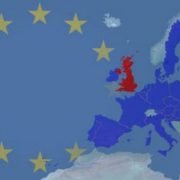UK GOVERNMENT CONFIRMS PEOPLE BORN IN NORTHERN IRELAND ARE TO BE CONSIDERED EU CITIZENS FOR CERTAIN IMMIGRATION PURPOSES
The UK Government has announced a change to its immigration laws following a landmark court case involving Derry woman Emma De Souza and her US-born husband Jake De Souza.
The case concerned the right of people in Northern Ireland to be considered Irish or British citizens, or both, as per the terms of the 1998 Good Friday Agreement.
Mr De Souza had applied to the UK Home Office for an EEA residence card to live and work in Northern Ireland on the basis of his marriage to Ms De Souza in 2015. The application was rejected on the basis that Ms De Souza was considered a British citizen because she was born in Northern Ireland, and therefore she was not entitled to EU free movement rights. This was despite the fact that Ms De Souza had never held a British passport and identified as an Irish citizen.
The UK Home Office originally argued that people born in Northern Ireland are automatically British citizens according to the 1981 British Nationality Act, even if they identify as Irish. It stated that the only way it could deal with Mr De Souza’s application was if Ms De Souza renounced her status as a British citizen.
Ms De Souza argued that the UK’s immigration laws were incompatible with the right of Northern Irish people to be accepted as Irish or British, or both, under the Good Friday Agreement.
The UK Home Office has now made a change to its immigration laws, confirming that British and Irish citizens born in Northern Ireland will be treated as EU citizens.
This decision has far-reaching consequences in light of the UK’s EU Settlement Scheme, which is open for applications until June 2021. The Scheme allows EU citizens and their family members to apply to reside in the UK post-Brexit. Until now, family members of British or dual British-Irish citizens from Northern Ireland were ineligible to apply for status under the Scheme.
All citizens in Northern Ireland will now have the right to apply for a non-EEA family member to remain in the UK through the Scheme, up until June 2021. This means that British citizens in Northern Ireland now have more rights than their counterparts in England, Wales and Scotland.
Speaking about the announcement, Ms De Souza commented:
“These changes are on the back of years of campaigning for the full recognition of our right to be accepted as Irish or British or both under the Good Friday Agreement.
We have always contended that no-one should be forced to adopt or renounce a citizenship in order to access rights, to do so goes against both the letter and the spirit of the Good Friday Agreement, the Home Office now concedes that point.
These changes will only apply to Northern Ireland and recognise the unique status that the region holds within the United Kingdom. Something that we have longed called for.
We personally know a number of families that will benefit from this change and are filled with joy and relief that these families will not face calls to renounce British citizenship or face years in court like we have.”

